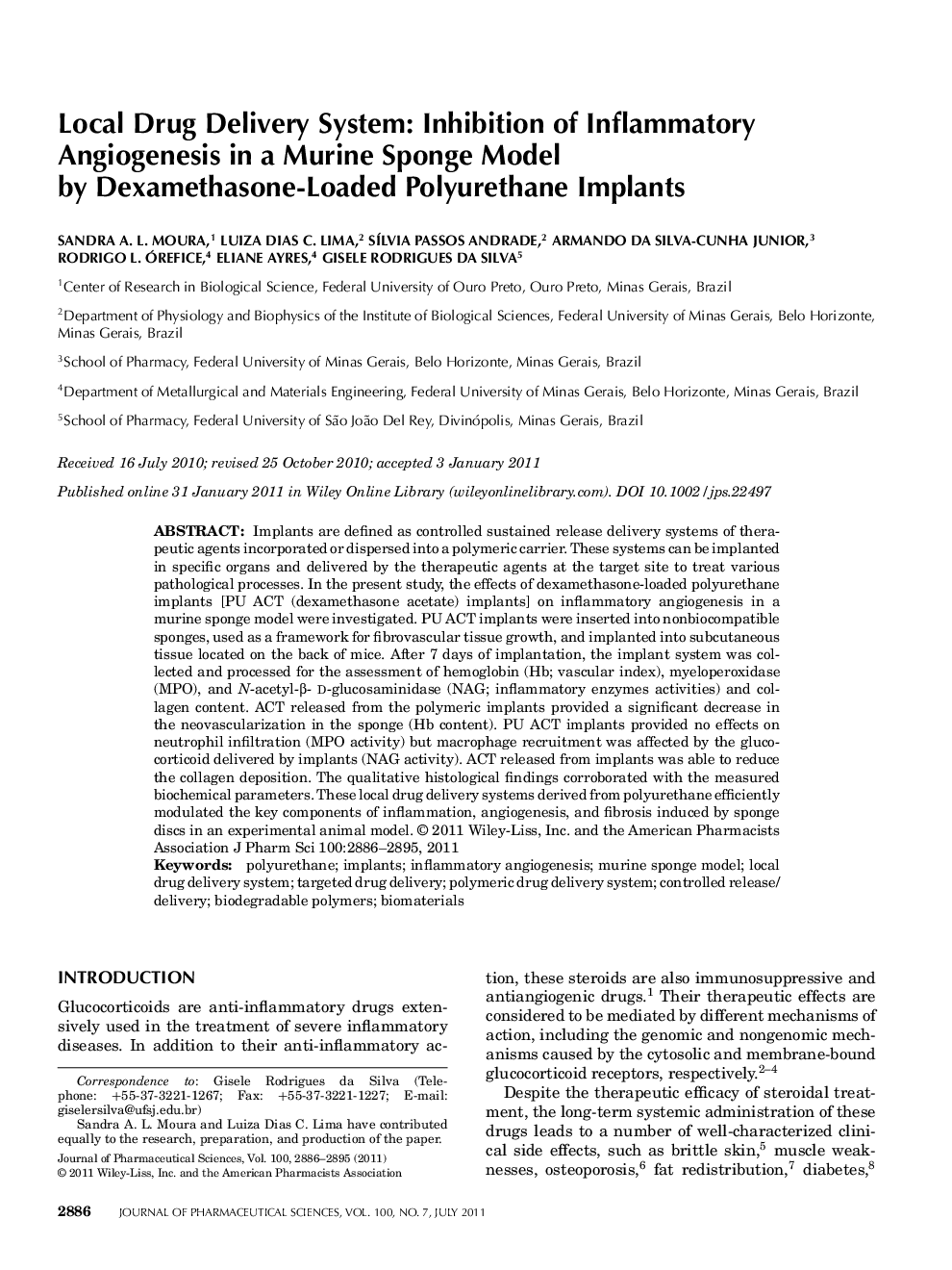| Article ID | Journal | Published Year | Pages | File Type |
|---|---|---|---|---|
| 2486638 | Journal of Pharmaceutical Sciences | 2011 | 10 Pages |
Abstract
Implants are defined as controlled sustained release delivery systems of therapeutic agents incorporated or dispersed into a polymeric carrier. These systems can be implanted in specific organs and delivered by the therapeutic agents at the target site to treat various pathological processes. In the present study, the effects of dexamethasone-loaded polyurethane implants [PU ACT (dexamethasone acetate) implants] on inflammatory angiogenesis in a murine sponge model were investigated. PU ACT implants were inserted into nonbiocompatible sponges, used as a framework for fibrovascular tissue growth, and implanted into subcutaneous tissue located on the back of mice. After 7 days of implantation, the implant system was collected and processed for the assessment of hemoglobin (Hb; vascular index), myeloperoxidase (MPO), and N-acetyl-β- D-glucosaminidase (NAG; inflammatory enzymes activities) and collagen content. ACT released from the polymeric implants provided a significant decrease in the neovascularization in the sponge (Hb content). PU ACT implants provided no effects on neutrophil infiltration (MPO activity) but macrophage recruitment was affected by the glucocorticoid delivered by implants (NAG activity). ACT released from implants was able to reduce the collagen deposition. The qualitative histological findings corroborated with the measured biochemical parameters. These local drug delivery systems derived from polyurethane efficiently modulated the key components of inflammation, angiogenesis, and fibrosis induced by sponge discs in an experimental animal model.
Keywords
Related Topics
Health Sciences
Pharmacology, Toxicology and Pharmaceutical Science
Drug Discovery
Authors
Sandra A.L. Moura, Luiza Dias C. Lima, SÃlvia Passos Andrade, Armando Da Silva-Cunha Junior, Rodrigo L. Ãrefice, Eliane Ayres, Gisele Rodrigues Da Silva,
